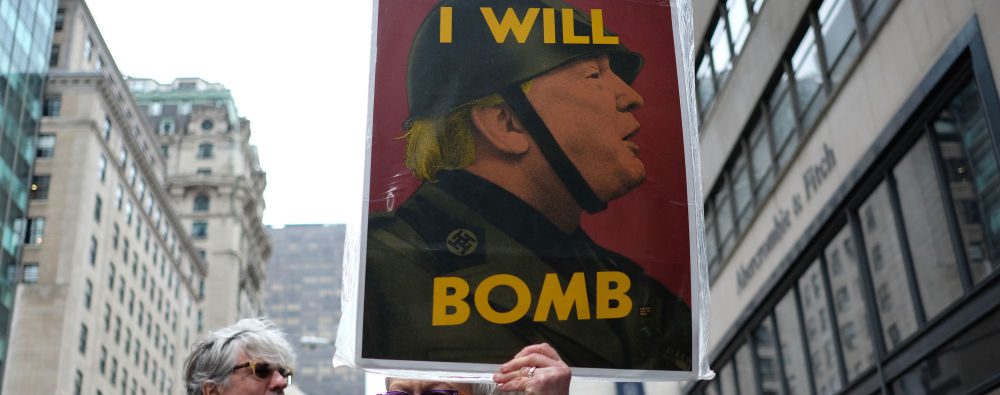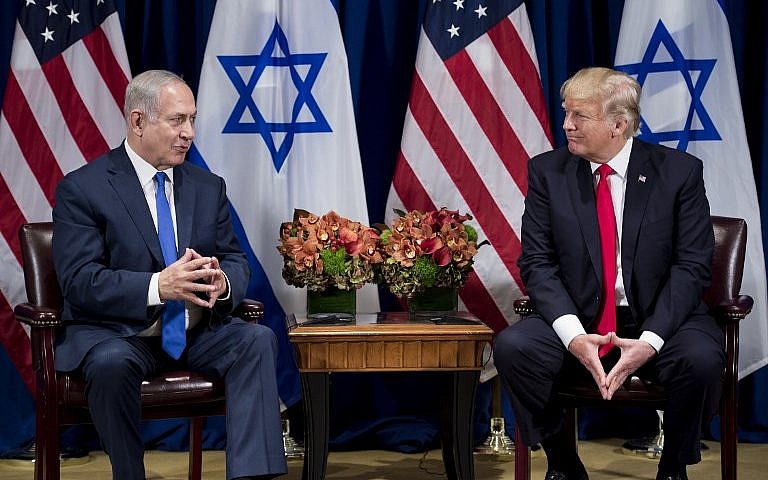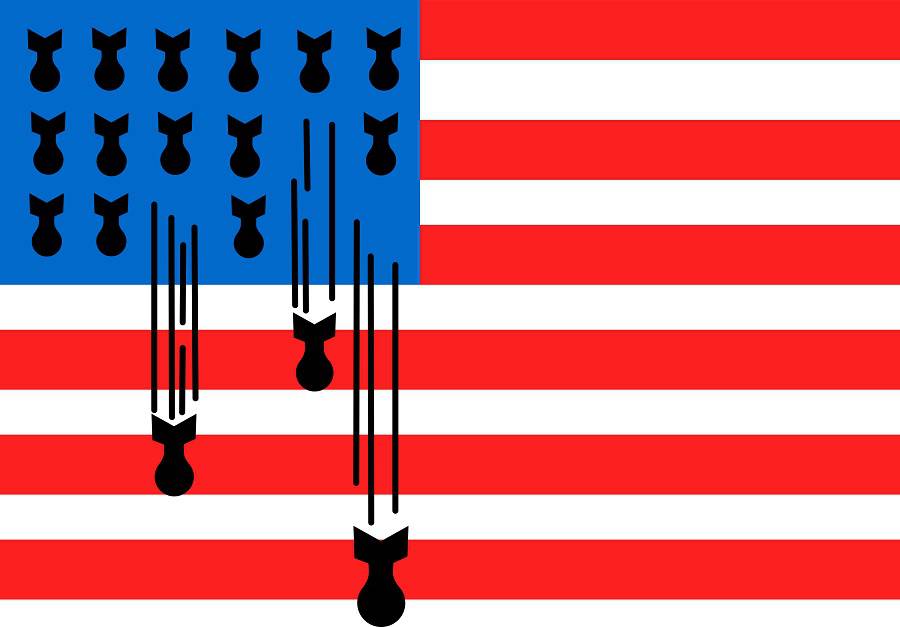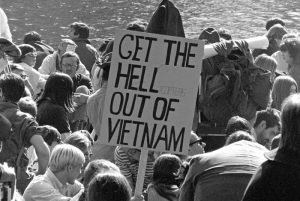
Views: 19170

The new US National Security Strategy released this week and the speech delivered by President Donald Trump Monday to introduce it constitute a grim warning to humanity that US imperialism is firmly embarked on a road that leads to a nuclear third world war.
While the document has largely been passed over in silence by the president’s ostensible political opponents in the Democratic Party and given relatively short shrift by the establishment media, more thoughtful ideologists of imperialism have noted the far-reaching changes presented in the document.
Writing in the Wall Street Journal, the historian Arthur L. Herman declared Trump’s National Security Strategy heralds a “profound shift back to the world before 1917: an anarchic international arena in which every sovereign state, large or small, has to rely on armed strength” for its security.
“In this new era” Herman writes, “might inevitably makes right.” Only power matters, and “the big powers inevitably dominate the small.”
Herman adds,
“This is the world of Otto von Bismarck, who said in 1862: “The great questions of the time are not decided by speeches and majority decisions. .. but by iron and blood.”
An editorial in the Wall Street Journal lauded the document’s unvarnished realpolitik, praising its identification of China and Russia by name as “revisionist powers” that seek to “challenge American power, influence, and interests.” With a glee that resembles nothing so much as the war fever gripping the ruling classes before the First World War, the Journal hails the document as an “important corrective from the sunny assurances of the Obama years” and his proclamations that “the tide of war is receding.”
The international press has likewise drawn far-reaching conclusions from the document, with Brendan Thomas-Noone proclaiming in the Australian that, despite the “uncertainty” surrounding the Trump Administration, the document reveals a longer-term “shift in the US foreign policy consensus from global economic integration to great power competition.”
He continues:
“The security strategy argues that the US is entering a new era of great power competition with ‘revisionist’ states—China and Russia. For several decades now, US policy has been to engage these powers, bringing them into international institutions and integrating them with the global economy. It was thought that this would, as the strategy puts it, ‘turn them into benign actors and trustworthy partners’. It adds that ‘for the most part, this premise turned out to be false.’”
To the extent that there has been criticism from the Democrats and their media allies, it has largely centered on the failure of both the document and the speech to explicitly denounce Russia for its alleged “meddling” in the 2016 election. This line of faultfinding only tends to support the overall bellicose character of the administration’s policy, merely advancing a tactical quibble over whether Russia or China should be the priority target in US war preparations.
Mandated by a law passed in 1986, the annual presentation by the White House to Congress of a National Security Strategy (NSS) is supposed to outline Washington’s “worldwide interests, goals and objectives” and present “proposed short-term and long-term uses of the political, economic, military, and other elements of the national power” to achieve them.
If the latest NSS and Trump’s speech have elicited little in the way of substantive criticism, it is undoubtedly because there has been a strong element of continuity in US strategy over the course of the past quarter century since the Stalinist bureaucracy’s dissolution of the Soviet Union and the proclamation by Washington of a new “unipolar moment.”
In essence, that strategy has been based on the conclusion that the liquidation of the USSR had relieved US imperialism of previous restraints upon the use of military force in pursuit of its global interests. The predominant layers within the US ruling elite embraced a strategy based upon the delusion that US military supremacy could be actively employed as an instrument for offsetting the relative decline of American capitalism’s dominance of the globe.
This belligerent posture was a manifestation not of American capitalism’s strength, but rather its degeneration and the fears within the US ruling class that the much-celebrated “American Century” could be coming to an end.
In 1992 the Pentagon adopted a foundational Defense Planning Guidance document spelling out Washington’s global hegemonic ambitions. It stated:
“There are other potential nations or coalitions that could, in the further future, develop strategic aims and a defense posture of region-wide or global domination. Our strategy must now refocus on precluding the emergence of any potential future global competitor.”
The 1990s saw the implementation of this new policy through the first Persian Gulf War and the brutal intervention to break up Yugoslavia, culminating in the US-led bombing of Serbia in 1999.
The events of September 11, 2001 provided the “war on terror” pretext for a vast escalation of global American militarism. Washington’s policy was spelled out in a 2002 National Security Strategy issued by the Republican administration of George W. Bush adopting the doctrine of “preventive warfare.” This doctrine held that the US could attack any country in the world that it perceived as a potential threat to US interests, a policy that essentially repudiated the Nuremberg principles on aggressive war that provided the legal foundation for the trial and execution of the surviving Nazi leaders.
The doctrine found swift application in the US invasion of Iraq, on the phony pretext of “weapons of mass destruction,” producing one of the greatest war crimes since the fall of Hitler’s Third Reich.
Democratic President Barack Obama, elected based on the misconception that he would initiate a reversal of Bush’s policy, embellished upon the “preventive war” doctrine in his justification of the unprovoked 2011 US war of aggression against Libya. He insisted that US military force was justified even when “our safety is not directly threatened, but our interests and values are,” adding that this included actions aimed at “ensuring regional security, and maintaining the flow of commerce.” In other words, Washington reserves the “right” to launch aggressive war anywhere that the profits and markets of US banks and corporations are at stake.
While there is an unmistakable continuity between these earlier elucidations of the doctrine of global US militarism and the belligerent NSS document and speech delivered by Trump, there is also a significant break, reflecting the deepening crisis of American and world capitalism and the fact that the latest stage in the ongoing US struggle for world hegemony is aimed ever more directly at Russia and China, both nuclear powers.
In his speech, Trump cast himself—much in the manner that Adolph Hitler did in Germany eight decades ago—as the savior of the nation and the champion of the “forgotten man” come to reverse a sellout to foreign interests by “too many of our leaders—so many—who forgot whose voices they were to respect, and whose interest they were supposed to defend.”
Underlying this “stab in the back” rhetoric is the fact that the past quarter century of US military aggression has produced one debacle after another while demonstratively failing to reverse the decline of American capitalism on the world stage.
At their core, the NSS document and Trump’s speech reflect the conclusions drawn from this experience by the top brass of the US military, whose representatives—McMaster, Mattis and Kelly—now dominate the White House and US foreign policy. Described by leading Democrats as “the adults in the room,” their prescription is for a massive escalation of US militarism.
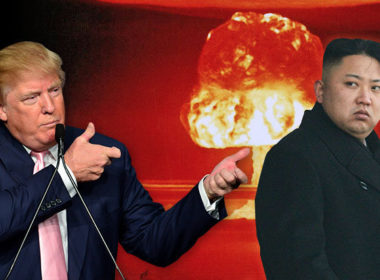 The document laments the “strategic complacency” of the US over the past period, the failure to build “military capacity” and acquire “new weapons systems,” as well as the idea that war could be “won quickly, from stand-off distances with minimal casualties.” Clearly, what they have in mind are an unprecedented increase in military spending and new wars in which the deaths of US soldiers will once again be counted in the tens and hundreds of thousands.
The document laments the “strategic complacency” of the US over the past period, the failure to build “military capacity” and acquire “new weapons systems,” as well as the idea that war could be “won quickly, from stand-off distances with minimal casualties.” Clearly, what they have in mind are an unprecedented increase in military spending and new wars in which the deaths of US soldiers will once again be counted in the tens and hundreds of thousands.
Above all, however, the text departs from previous NSS documents in its open embrace of nuclear war as a viable option. The document states that a buildup of the US nuclear arsenal is “essential to prevent nuclear attack, nonnuclear strategic attacks, and large scale conventional aggression,” strongly suggesting that the US military is prepared to launch a nuclear first strike in response to a nonnuclear challenge. It goes on to affirm that “fear of [nuclear] escalation will not deter the United States from defending our vital interests.”
“History,” Leon Trotsky warned on the eve of the Second World War, “is bringing humanity face to face with the volcanic eruption of American imperialism.”
This prognosis has found powerful confirmation in the threats emanating from Washington this week. The lack of any significant opposition makes it clear that there is no “peace faction” within the US ruling establishment. The prospect of a third—nuclear—world war can be countered only by the international working class mobilizing itself as an independent revolutionary force against the imperialist war and its source, the capitalist system.
Originally published on 2017-12-20
Author: Bill Van Auken
Source: WSWS.org
Origins of images: Facebook, Twitter, Wikimedia, Wikipedia, Flickr, Google, Imageinjection, Public Domain & Pinterest.
Read our Disclaimer/Legal Statement!
Donate to Support Us
We would like to ask you to consider a small donation to help our team keep working. We accept no advertising and rely only on you, our readers, to keep us digging the truth on history, global politics, and international relations.
FOLLOW US ON OUR SOCIAL PLATFORMS

